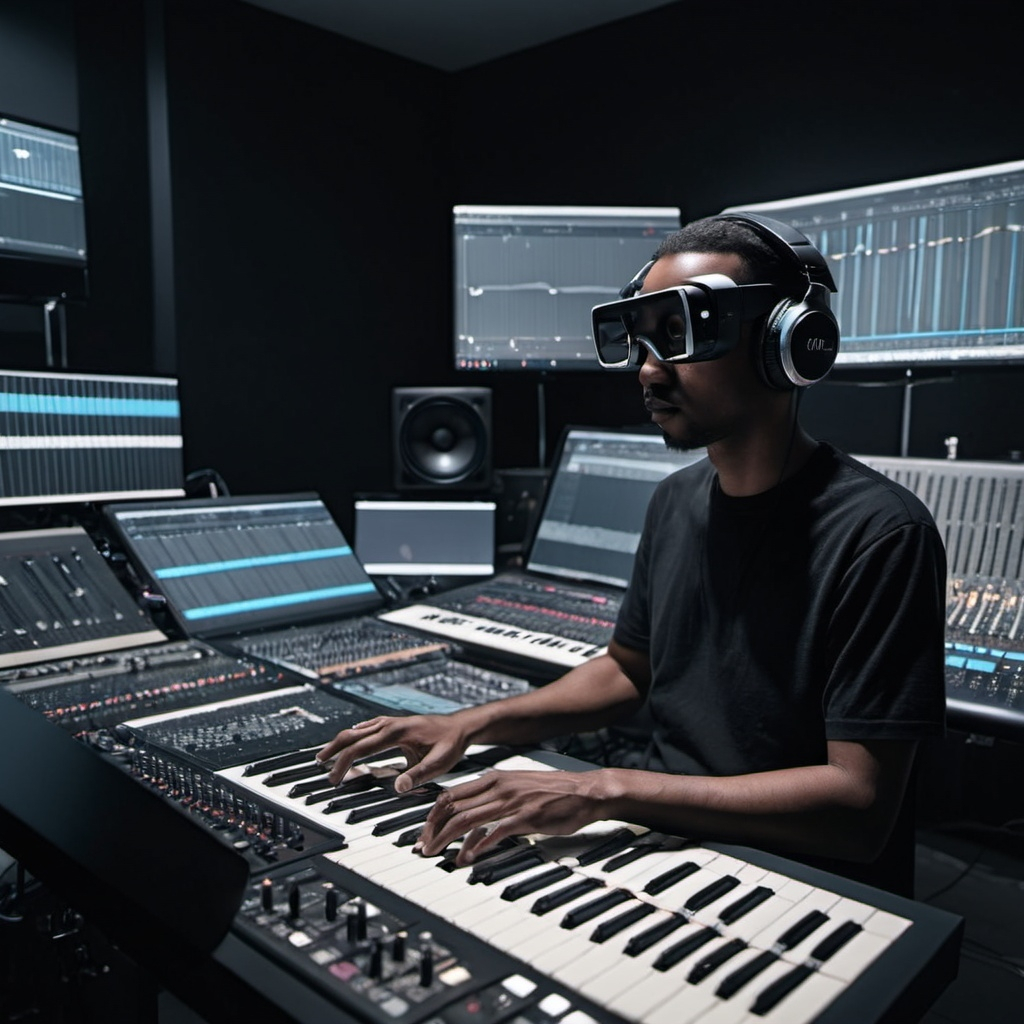In the rapidly evolving landscape of the music industry, artificial intelligence (AI) is emerging as a transformative force, reshaping how music is created, produced, and even consumed. From assisting in the creative process to streamlining production tasks, AI is enabling artists and producers to push the boundaries of what’s possible in music.
AI as a Creative Partner
One of the most exciting aspects of AI in music production is its ability to act as a creative partner. AI-driven tools can generate melodies, harmonies, and chord progressions, helping artists overcome creative blocks and explore new musical ideas. For instance, platforms like Amper Music and AIVA use AI algorithms to compose music, allowing artists to experiment with different genres and styles effortlessly. This collaboration between human creativity and AI’s computational power opens up endless possibilities for innovation.
Enhancing Production Efficiency
AI is also making significant strides in enhancing the efficiency of the music production process. Tasks that once took hours, such as mixing and mastering, can now be accomplished in a fraction of the time with AI-powered tools. Software like LANDR and iZotope’s Ozone employ AI to analyze tracks and make precise adjustments, ensuring a polished final product. This not only saves time but also allows producers to focus more on the creative aspects of music-making.
AI in Sound Design and Instrumentation
Sound design is another area where AI is making a profound impact. AI-driven synthesizers and virtual instruments can generate unique sounds that would be difficult or impossible to create manually. Tools like Google’s Magenta project explore how machine learning can be used to create entirely new sounds, offering producers a vast palette of sonic possibilities. Additionally, AI can assist in automating repetitive tasks such as drum programming or audio editing, further streamlining the production process.
AI in Music Distribution and Consumption
Beyond creation and production, AI is also playing a crucial role in how music is distributed and consumed. Streaming platforms like Spotify and Apple Music use AI algorithms to personalize music recommendations, ensuring that listeners discover new tracks that align with their tastes. This personalized approach not only enhances the listener’s experience but also provides artists with more targeted exposure, helping them reach the right audience.
The Future of AI in Music Production
As AI technology continues to advance, its role in music production is expected to grow even more significant. Future developments may include more sophisticated AI tools that can understand and adapt to an artist’s unique style, offering even greater creative collaboration. Moreover, as AI becomes more accessible, it will democratize music production, allowing anyone with a computer and a passion for music to create professional-quality tracks.
In conclusion, AI is not just a tool but a revolutionary partner in modern music production. By enhancing creativity, improving efficiency, and personalizing the music experience, AI is helping to shape the future of the music industry. As artists and producers continue to embrace these technologies, the possibilities for innovation in music are limitless.

Traga
Collaboratively empower multifunctional e-commerce for prospective applications. Seamlessly productivate plug and play markets.
Traga
Collaboratively empower multifunctional e-commerce for prospective applications. Seamlessly plug and play.
Traga
Collaboratively empower multifunctional e-commerce for prospective applications. Seamlessly productivate plug and play mosque.